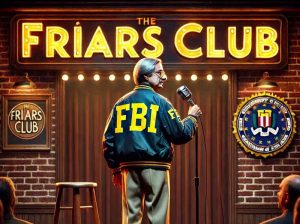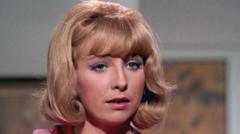F. Scott Fitzgerald's "The Great Gatsby" has evolved from tepid reviews to a revered classic. In examining its appeal, the narrative emphasizes its brevity, romance, humor, and Fitzgerald’s exceptional prose, illustrating its layered entertainment value alongside its deeper social critiques.
Exploring the Ongoing Allure of "The Great Gatsby"

Exploring the Ongoing Allure of "The Great Gatsby"
A deep dive into why F. Scott Fitzgerald’s novel remains a beloved classic a century after its publication, celebrating its complexity beyond its thematic seriousness.
In April 2025, F. Scott Fitzgerald's "The Great Gatsby," a novel that explores the life of a tragic millionaire on Long Island, marks its centennial anniversary. Initially met with lukewarm critical reception and lackluster sales, it has since transformed into an essential component of both literary education and cultural discussion, particularly after World War II.
In a recent examination of its enduring legacy, it's essential to highlight why “Gatsby” garners such adoration today. First and foremost, it's simply an enjoyable read—far more than just a requirement on literary lists. The novel's accessible length, coming in at under 200 pages, allows readers to finish it during a single rainy afternoon or a lengthy flight. While it starts with some philosophical musing from narrator Nick Carraway, the intrigue surrounding Jay Gatsby draws readers in quickly. Fitzgerald keeps Gatsby's character enshrouded in mystery, only gradually revealing details through a series of tantalizing glimpses and observations by Nick.
Moreover, the romantic element of Gatsby's character further enriches the narrative. Described as possessing “some heightened sensitivity to the promises of life,” Gatsby’s ambition is dedicated to a pure love for Daisy, another key character. This tension between Gatsby’s noble aspirations and the superficiality of the society around him underlines both the vitality of the storyline and Fitzgerald's social criticism. The love story resonates deeply, while the satire maintains its strength due to the layered nature of both elements.
Fitzgerald's sharp wit and observant eye bring a comedic quality to the text. Critics of his time appreciated the book's candid portrayal of the era's follies, and these observations remain relevant today. The character of Tom Buchanan, who embodies a crude arrogance and intellectual pretension, serves as a humorous critique of similar social types in contemporary society.
Additionally, Fitzgerald’s skillful writing style captivates readers. The novel juxtaposes quick-paced humor with lyrical reflections seamlessly. With a diverse range of tones, from breezy dialogue to profound philosophical insights, Fitzgerald's narrative voice keeps readers engaged. The iconic final sentence—“And so we beat on, boats against the current, borne ceaselessly back into the past”—is just one of many evocative lines that contribute to its acclaim.
Thus, "The Great Gatsby" appeals on many levels—entertaining, romantic, humorous, and revelatory. Its combination of fun and depth ensures its status as not just a literary classic but also a pleasure to read, securing its place in the hearts of many for the next century to come.






















